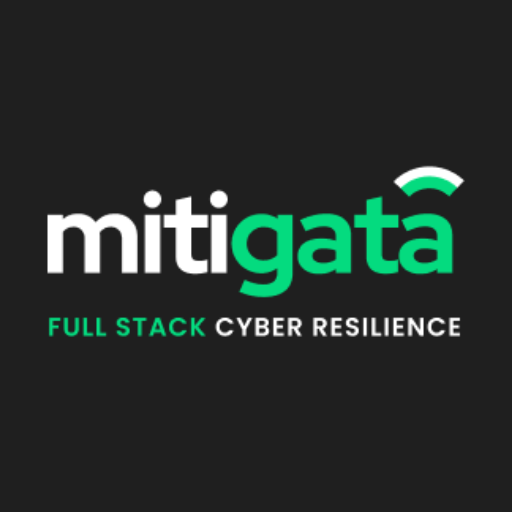Do you still use a VPN to secure your remote work setup?
Then you have already fallen behind. As per 2024 surveys, around 60% of businesses have already switched from VPNs to Zero Trust Network Access (ZTNA).
So, what’s the deal? Why are businesses abandoning VPNs, and should you worry if you still use one?
Suppose an attacker gains access to your VPN credentials. Once inside, they can navigate your network and collect sensitive information, acting as a trusted user. It becomes entirely easy for them to steal sensitive data, install malware, or exfiltrate massive amounts of sensitive data.
Does this sound like a major vulnerability to you?
In this blog, we’ll explore why businesses are making the shift to ZTNA and what the key differences are between the traditional VPN and modern ZTNA.
Mitigata – Your Trusted Partner for ZTNA Solutions
At Mitigata, we know that securing your remote workforce is no small feat. That’s why we’ve teamed up with the best in the business, including Palo Alto Networks, Zscaler, Cisco, Fortinet, and others, to bring you advanced ZTNA solutions that are simple to use and easy to scale.
Our ZTNA Starts at Just ₹3,500/Device

Why do over 800 businesses trust us?
- Free Demo: Experience our ZTNA solutions firsthand before making any decisions.
- Best Market Prices: Our solutions come with market-leading prices, ensuring your security doesn’t come at a premium.
- 24/7 Support: Our team is available 24/7, making sure you’re never left in the dark when issues arise.
- Easy Integration: Connecting our solutions with your existing systems is seamless, saving you time and effort.
- Personalised Solutions: We provide tailored security solutions that fit your business needs.
Find out which EDR solutions are trusted by Indian companies for maximum protection.
Why Businesses Are Moving Beyond Traditional VPNs
Traditional VPNs were previously the standard tool for remote access, but now they are becoming ineffective in today’s cybersecurity world. Here’s why:
Overly Broad Access: VPNs provide full network access after authentication, acting as a master key while users only require access to certain resources. In 2024, attackers hacked a finance analyst’s VPN credentials and went laterally via systems for three weeks, gaining access to HR databases, financial documents, and intellectual property far beyond the analyst’s legitimate needs.
Performance Bottlenecks: All connections, regardless of location, go through a single gateway. Suppose there is a Singapore sales staff accessing Sydney-hosted applications via a London VPN gateway. They will experience an additional 400-600 milliseconds of latency per transaction, making simple activities complex.
Poor Scalability: Configuring and operating VPNs for hundreds or thousands of users is complicated and expensive. Each new user requires manual setup and maintenance.
Weak Visibility and Control: It’s difficult for IT teams to keep an eye on every user’s actions. You have no idea what they’re actually doing once they’re connected. Which files are they accessing? Are they downloading unusual amounts of data?
Cloud Compatibility Issues: Undoubtedly, VPNs were effective when everything was stored in your company’s server room. But now your teams rely on Salesforce, Microsoft 365, Zoom, and a variety of other cloud services to handle office-related work. Forcing this cloud traffic through your previous VPN setup does not increase security. Instead, it makes things slower and more difficult to administer.
The ZTNA Shortcut You Are Searching

What Is ZTNA and How It Works
Zero Trust Network Access (ZTNA) is a modern method of safeguarding remote access. Rather than assuming that once a user logs in, they are a trusted individual, ZTNA follows the philosophy of “never trust, always verify.”
Here is how it works:
User Authentication: Every access request begins with the principle of identity verification, which is accomplished through multi-factor authentication (MFA) or single sign-on.
Contextual Verification: ZTNA assesses contextual factors of the user, such as device health, user location, and time of access. If a user logs in from an unknown device or another country, ZTNA may require additional verification.
Granular Access: In a ZTNA, even if a user is logged in, he is only assigned access to applications (not the entire network), as compared to a VPN environment.
Discover the top 7 ZTNA solutions in India that help businesses strengthen remote access security and embrace a Zero Trust future.
Continuous Monitoring: Once gained for the established user session, ZTNA continually monitors it. If the threat changes (for example, if a user device becomes infected), ZTNA detection can terminate access to the program in real time.
Application segmentation: ZTNA separates application access from the public internet, decreasing exposure and attack surfaces.
Key Differences Between ZTNA and Traditional VPNs
| Feature | Traditional VPN | ZTNA |
| Access Model | Network-level access | Application-level access |
| Trust Approach | Implicit trust after login | Continuous verification |
| Visibility | Limited user activity tracking | Full visibility and real-time analytics |
| Scalability | Difficult to scale for remote or hybrid teams | Cloud-native and easily scalable |
| Performance | Centralised traffic can cause latency | Direct-to-app connections for faster performance |
| Security Posture | Vulnerable to lateral movement | Segmented and zero-trust enforced |
Zero Trust. Zero Wasted Time.

Conclusion
Due to the growing number of cyberattacks, businesses must find defensive solutions to protect against external and insider threats.
The traditional VPN no longer meets all these changing needs. ZTNA, however, can offer precise protection, scalable coverage, and continuous verification to protect a dynamic digital environment.
Get in touch with Mitigata today to safeguard your workforce with Zero Trust confidence.

